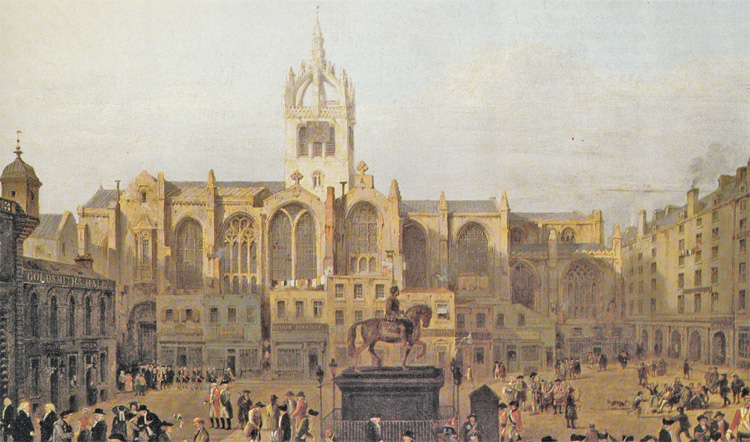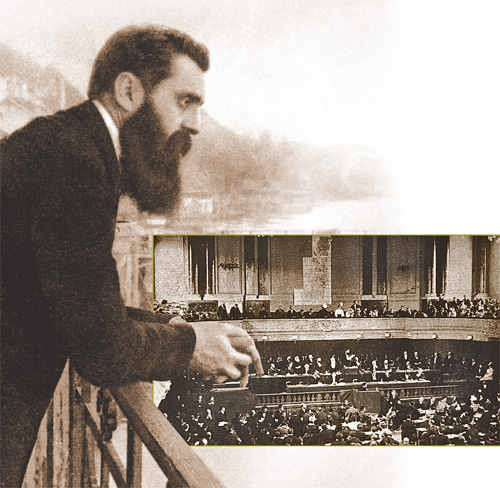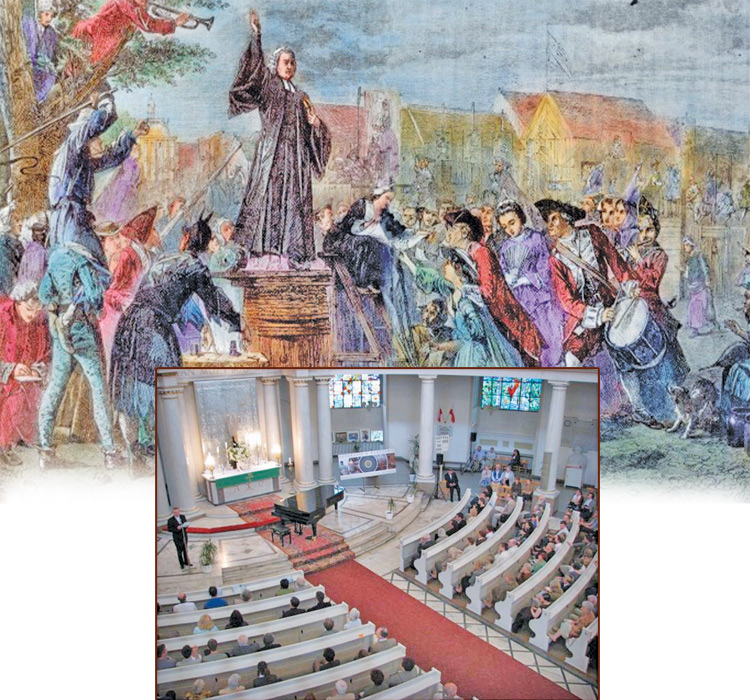Following the division of Christianity into a number of different churches, such as the Catholic and Orthodox churches, a reformist movement grew up within it. This movement criticized the making of money through the sale of indulgences (a kind of document pertaining to the forgiveness of sins sold in Medieval Europe by the Pope to enable the holder to enter paradise), the Mass being performed in Latin and the doctrine of papal infallibility. This new movement, initiated by Martin Luther in Germany and by John Calvin in France and Switzerland, came to be known as “Protestantism.”
In Protestantism, repentance was between the individual and God. There was therefore no reason to give money to the Church for it. Papal infallibility was also done away with. The true source, according to this movement, was the Holy Book alone, and not commands issued by the Pope or Church sanctions.
Evangelicalism is one branch of Protestantism; the word means “good news.” In Evangelicalism, Matthew, Mark, Luke and John, referred to as the disciples of the Prophet Jesus (pbuh) in the New Testament, are known as “evangelists.” It was Martin Luther who employed the term “evangelical” first.
Luther saw that the New Testament had been misinterpreted and corrupted by the Catholic Church, for which reason he attached greater importance to the Old Testament (the Torah and the Psalms). Protestantism was subsequently divided into scores of different denominations, but none of these denominations abandoned the central view about essential beliefs and the Holy Scripture that included the Old Testament.1
Evangelicalism is an important and necessary reform in turning Christians to the Gospels - and also the Torah - by lifting pressure on the faith from the Church. The supporters of Evangelicalism, a sincere form of belief, have always maintained loving and peaceable attributes and, as we shall be seeing in due course, made a great contribution to the spread of religion due to the importance they attached to “evangelizing.” Again as we shall be seeing, Evangelicals’ belief in the End Times and excitement at the prospect of seeing the Prophet Jesus (pbuh) indicate a great love and religious devotion. From that perspective, they have much in common with true Muslims who abide by the Qur’an.
 |
| An 18th century cathedral and people of the time. |
As in all religions, however, there are various sections in Evangelicalism that interpret the teachings in question rather differently, that misunderstand the subjects related to the End Times and that seek to equate Christianity, a religion of peace, and the Prophet Jesus (pbuh), an envoy of peace, with war. These people invent what they regard as powerful evidence for scenarios of war on the basis of various passages in the Gospel. They imagine they are being perfectly honest, that they are basing themselves on the Gospel and doing what is right, but they fail to recognize the various metaphorical statements that occur in the depths of the Gospel. The second problem in this error of interpretation is that they find it difficult to turn to the Qur’an, sent down as a confirmation of the Gospel and the Torah: Yet the coming of the Prophet Jesus (pbuh) is explicitly revealed in the Qur’an, as well as a climate of peace in which all people believe.
This book is based on the views of that segment of Evangelical Christians who interpret the End Times in a dangerous manner and one very different to that described in the Divine scriptures. These people – who are generally well-intentioned – are pioneers for a horrifying scenario, albeit most likely unwittingly. They are striving to accelerate the End Times scenarios in the Middle East but are actually preparing a bloody foundation there. This will all be clarified in due course.
The various movements that emerged within Protestantism up until the 18th century later settled in different parts of the world under the influence of colonialism. The most important of these was the North American continent. Evangelical thinking is known to have spread more rapidly following journeys to America by the Anglican clergyman John Nelson Darby. Darby’s followers also described their movement as “dispensationalism.”
The primary distinguishing feature of these people is their belief in the return of the Messiah in the End Days and in Doomsday. The conditions under which they believe the Messiah will return are as follows:
 |
| Theodor Herzl speaking at the Second Zionist Congress in Basel in 1898. |
As this list shows, Evangelicals are essentially Zionist Christians. They believe that the establishment of a Jewish state in the Holy Land is paramount for the coming of the Messiah. They have therefore always been in a state of alliance with Zionist Jews.
One of the most important pieces of evidence for this is the Zionist congresses. The first Zionist Congress was held by Theodor Herzl in 1897 and called for the return of the Jews to the Holy Land. In 1985, the Second Christian Zionist Congress was held in Basel, the same city and in the same building where the First Zionist Congress opened. A resolution at that congress urged Israel to annex the West Bank. Jan Willem van der Hoeven, spokesman for the International Christian Embassy, said this in response to a Jew who objected to that idea; “We don’t care what the Israelis vote! We care what God says! And God gave that land to the Jews!" 2
That reaction is very important in terms of showing the bounds of the Evangelical Zionism that still persists today because this movement that appears to be aimed at protecting the Jews and Jewish lands, is in fact preparing the way for an end in which the Jews will be slaughtered. According to this belief, only 144,000 Jews who convert to Christianity will survive, while the other Jews, and “all Muslims,” will be slaughtered. We shall be looking at this matter shortly.
The state of Israel was founded in 1948, and Jerusalem was declared its capital in 1967: One of the signs awaited by the Evangelicals thus came true. The more these portents, signs of the End Times, came about, the more the Evangelicals set about accelerating what they believe to be the final outcome. That is why efforts to reshape the Middle East in the name of the Battle of Armageddon have gained impetus in this century.
As in all faiths and schools, Christian denominations are based on being a fine and good servant of God and Evangelicalism was also founded on that basis. However, one of the main distinguishing features between Evangelicalism and other branches of Christianity is the question of “preaching the Word,” on which less emphasis is placed in the latter. As a requirement of their faith, the followers of this sect engaged in active missionary work, preaching the word to other people. As time passed, Evangelicalism thus became increasingly well known and widespread, particularly in America.
 |
| The number of members of the Evangelical Church in America was 4 million at the time of the Civil War, but is now said to have reached some 70 million. The rise in spirituality in America and other countries where Christianity is widespread is grounds for rejoicing. |
We can see this from the figures. In Civil War America (1861-1865) the number of members of the Evangelical Church was 4 million, whereas today it is put at 70 million. According to the figures for 2014, 25.4% of Americans describe themselves as Evangelicals. Although Evangelicalism at first espoused different beliefs to those of Catholicism, Evangelical belief today is no longer in such great conflict with Catholic belief. 3
It needs to be made clear that, although Christianity has sometimes turned away from its essence as a result of conflicting interpretations and has split itself into different sects, we, as Muslims, still wish to see Christian belief and faith in God grow, especially at a time when the outright denial of God is spreading like wildfire. Of course Christians must be more devout, of course they must espouse the Holy Book more and spirituality must be strengthened in America and all other countries where Christianity is widespread. America and other countries have invariably prospered and grown happy in line with their religious devotion. Therefore, we always wish to see and fully encourage the growth and strengthening of Islam among Muslims, of Christianity among Christians and of Judaism among Jews.
In addition, the Evangelical belief in the coming of the Messiah is also an issue of faith to be praised in our eyes. Muslims also are in expectation of the appearance of Hazrat Mahdi (pbuh) and the return of the Prophet Jesus (pbuh) in the End Times, in which we are living now. It is therefore grounds for rejoicing that Christians hold a similar belief. It represents a point in common that will enhance our love and support for Christians and strengthen our alliance with them.
 |
| Muslims, Christians and Jews must all be more devout at this time when irreligion is on the rise. |
There is nothing peculiar about the Evangelical expectation of a state of Israel in the Middle East. In the verses of the Qur’an, the Jews have the right to live in the Holy Land, and this is set out explicitly in several verses, as it also is in the Torah. Verses 20 and 21 of Surat al-Ma’ida read:
Remember when Moses said to his people, “My people! Remember God’s blessing to you when He appointed prophets among you and appointed kings for you, and gave you what He had not given to anyone else in all the worlds! My people! Enter the Holy Land which God has ordained for you. Do not turn back in your tracks and so become transformed into losers.” (Qur’an, 5:20-21)
Therefore, for Muslims, seeing Jews in the Holy Land even after 5.000 years means seeing God’s promise come to pass and this is a reason for rejoicing. One of our greatest hopes is to see Jews, Christians and Muslims living together in peace in those lands, as they did in the past.
What we shall be concentrating on, and the subject of our criticism, is the efforts on the part of some Evangelicals to shape the Middle East in line with their expectations of war in the region, which represents a manifestation of their desire to accelerate the coming of the Messiah in one sense, and the fact that some of their erroneous belief and hopes regarding the Holy Land have reached dangerous dimensions.
First of all, the time of the coming of Hazrat Mahdi (pbuh) and the Messiah is ordained in destiny by God. Therefore, nobody, no circumstances and no signs can accelerate or bring forward that coming. The battle of Armageddon awaited in the Middle East refers to all of the conflicts that began with the Iraq war in 2003 and that are still going on in the Middle East . The 2003 Iraq War represents the beginning of a major battle, a sign of the End Times referred to as Armageddon in the Bible and described with all the relevant portents in the hadiths and the Torah. This huge war has been prolonged. The fact that so much blood is currently being shed in the Islamic world, and that Muslims are being martyred in almost all Middle Eastern countries, shows that Armageddon is now raging exactly as described.
Therefore, no other bloody battle of the kind expected by the Evangelicals will take place in the future. It also needs to be made clear that the concept of the Holy Land as described by the Evangelicals is different to that found in Jewish belief, and it involves wider borders. As a result, the idea of preparing the Middle East for war and preparations along those lines are false in all respects. One of their main errors is the dream of building a Great Kurdistan by breaking up the four countries that represent the backbone of the Middle East. This book describes why this plan is wrong under current conditions and the kind of tragedy that the pursuit of such a dream would inflict on the Middle East, Europe and then the entire world.
1. Yasin Yaylar, İsrail Amerika ve Evanjelizm (Israel, America and Evangelism), Altınpost Yayıncılık, 2012, p. 16
2. http://iraqwar.org/fundamentalists.htm
3. http://www.pewforum.org/2015/05/12/americas-changing-religious-landscape/